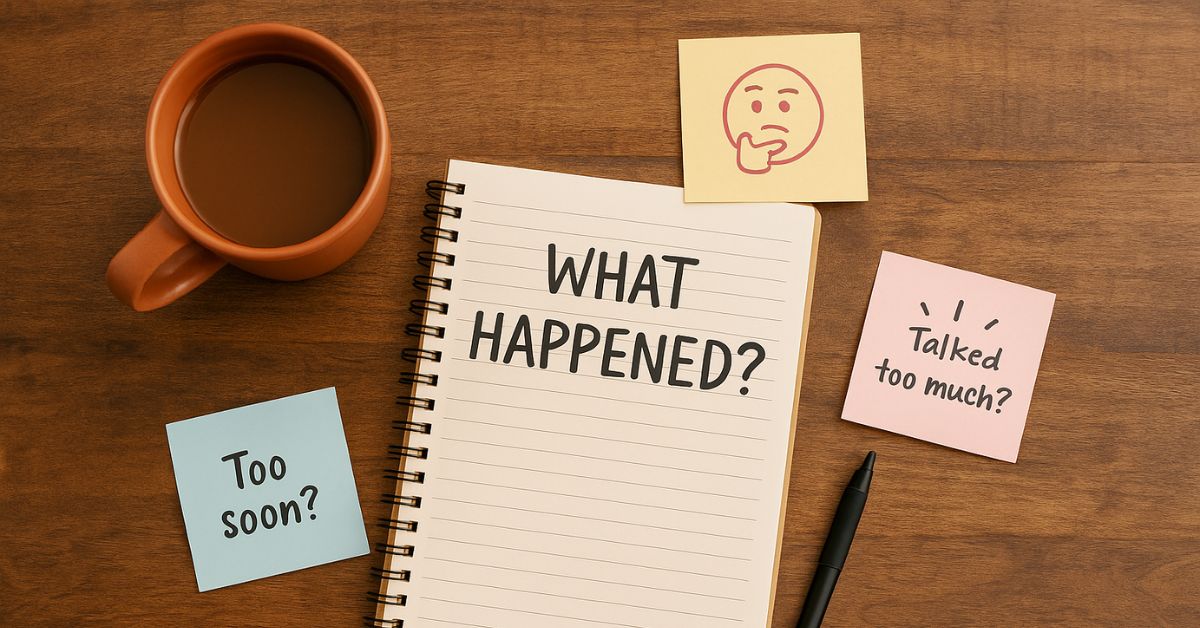
5 Reasons Why You Didn’t Get Called For A Second Date
First dates can be both exciting and nerve-wracking. While meeting someone new brings hope and anticipation, the dreaded silence afterward can leave you wondering what went wrong. If you’re asking yourself why no second date happened, you’re not alone. We’ve pinpointed five common reasons your potential connection might not have progressed, along with practical ways to increase your chances of securing that next meetup.
1. You Talked Too Much or Too Little
Conversation is the heart of any first date. Striking the right balance between talking about yourself and letting your date speak can make or break the experience. If you dominated the conversation by talking only about your achievements, past relationships, or personal struggles, your date may have felt unheard. On the other hand, if you didn’t share enough or relied on one-word answers, they might have struggled to connect with you.
How to Improve It:
- Ask thoughtful questions. Express genuine curiosity about your date’s life, interests, and values.
- Practice active listening. Show interest in what they say by nodding, maintaining eye contact, and responding appropriately.
- Share your own stories. Find a comfortable middle ground where sharing feels natural and mutual, not one-sided or overly reserved.
Be mindful of the flow of conversation, and remember it’s a two-way street.
2. Poor Manners or Lack of Awareness
First impressions matter, and poor manners can leave a lasting negative impression. From the way you treat the waitstaff at a restaurant to how much attention you give your phone, your behavior speaks volumes.
Some people unknowingly display habits that turn others off—for example, interrupting frequently, chewing noisily, or failing to say “thank you.” Even minor oversights can create a perception of inconsideration.
How to Avoid This:
- Put away your phone. Show undivided attention to your date.
- Be polite to everyone. From the server to the valet, how you treat others reflects your character.
- Mind small details. Use good table manners, avoid interrupting, and show gratitude for the effort your date made to meet you.
It’s often the small acts of respect and kindness that linger in someone’s mind after the date ends.
3. You Weren’t Their Match
Sometimes, not getting a second date isn’t about what you did wrong. It’s just a matter of compatibility. While frustrating, it’s important to remember that every date won’t lead to a perfect connection. Personality differences, differing values, or even mismatched expectations can all contribute to the decision not to continue the relationship.
It’s tempting to overanalyze, but compatibility issues are ultimately out of your control. Your date may have realized you’re not aligned on important topics like family, finances, or future goals.
The best takeaway is to adopt the mindset that a date’s decision not to pursue things further saves time for both of you. It makes room for someone who truly appreciates and values what you bring to the table.
4. Your Presentation Sent the Wrong Message
Whether we like it or not, appearance and presentation play a role in dating. This doesn’t mean you have to look like you stepped off a magazine cover, but showing care and attention to your grooming says a lot about self-respect. Wearing mismatched clothes, skipping personal hygiene, or arriving disheveled can give the impression that you didn’t make an effort.
Beyond physical appearance, how you carry yourself also matters. Nervousness is understandable, but excessive fidgeting or avoiding eye contact can come across as disinterest or insecurity.
How to Course-Correct:
- Dress appropriately. Align your attire with the nature of the date (e.g., semi-formal for dinner, casual but crisp for coffee).
- Pay attention to grooming. A neat appearance and fresh hygiene create a positive impression.
- Focus on body language. Smile warmly, sit up straight, and maintain comfortable eye contact to signal confidence.
Your outward presentation is the packaging of who you are, so give it the care and thought it deserves.
5. First Date Red Flags
Red flags are behaviors or comments that signal potential problems down the road. Often, these are picked up right away on a first date. A lack of boundaries, negativity, or being overly pushy are a few examples. For instance, bringing up an ex-partner repeatedly can make someone feel you’re still emotionally tied to the past. Similarly, talking too much about money, politics, or other hot-button topics might alienate a potential match if the timing or delivery feels off.
Another major red flag is desperation. If your date felt like you were overly eager to declare them “the one” after just one meeting, they may have backed away out of caution.
Suggestions for Avoiding Red Flags:
- Be mindful of sensitive topics. It’s okay to introduce meaningful conversations, but keep the tone neutral and respectful.
- Don’t overshare. Save deeper or highly personal stories for future dates as trust builds.
- Avoid giving a “sales pitch.” Authenticity goes a long way. There’s no need to convince someone you’re perfect; just be yourself.
Finding balance in what you share tells your date you’re grounded, confident, and up for taking things at a natural pace.

Building on Lessons Learned
Reflecting on past dating experiences isn’t about self-criticism. It’s about identifying areas where you can improve and building more meaningful connections moving forward.
If a second date didn’t materialize, use it as an opportunity to grow. Reaching out kindly for feedback is one option if you feel comfortable. Sometimes, simply giving yourself permission to adjust your approach with more mindfulness can make all the difference.
Each failed date is a stepping stone toward finding someone who genuinely clicks with you. While it can be frustrating in the moment, every experience brings you closer to the right match.
Final Notes
Remember, dating in your 50s, 60s, and beyond is just as much about rediscovery as it is about finding love. Patience and persistence are vital ingredients in creating healthy, lasting relationships. By approaching dates with openness, kindness, and self-awareness, you increase your chances of not just securing the second date but building the kind of connection that makes it worthwhile.











